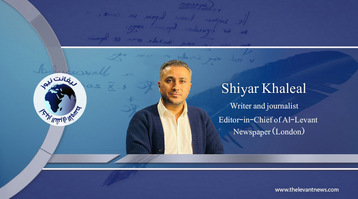-
Biden the War Finisher

“Our role in Iraq will be to be available, to continue to train, to assist, to help and to deal with ISIS as it arises, but we’re not going to be, by the end of the year, in a combat mission” Biden told reporters as he and Kadhimi met. Mr Kadhimi responded: "Today our relationship is stronger than ever. Our co-operation is for the economy, the environment, health, education, culture and more." He has insisted no foreign combat troops are needed in Iraq.
A strategic pattern is emerging around Biden’s foreign policy and the desire to seemingly tie up loose ends and long-term military adventures. Much of the Iraq shift is symbolic. There are currently only 2,500 US troops in Iraq down from a peak of 168,000 in 2007. Yet let us not forget that the US has ended combat operations in Iraq before, back in 2011 before the rise and rise of ISIS forced them to take a far more assertive stance in the country.
In Afghanistan the Taliban’s offensive and spiralling rates of violence gives a narrative of the US ending a forever war under fire, whereas in Iraq the US is ending combat operations but keeping a larger presence of troops for future eventualities. By having a high profile ‘end’ to the US missions in Afghanistan and now Iraq allows the Biden administration several political wins.
Firstly, he is the President who didn’t ‘surge’ or sustain unpopular wars but moved quickly in his first term to end them. This gives him the license to use the military more assertively elsewhere, for example around the Asia pivot that President Obama pursued. There is no longer a strategic anchor or competitor for priority and focus in Washington.
Secondly although the US will still have its largest global embassy in Baghdad, its presence in Iraq will surely cease to attract the hostile actions they have around other components of geopolitics. Rockets, mortars and large-scale protests have been fuelled by the infringements of sovereignty felt by Iraqis to a foreign army conducting combat missions in their country, soon to me no more. These incidents often cost very little to organise but steadily haemorrhage the US public image as actors in the country.
What is more as the Biden administration has taken a less belligerent policy approach to Iran, the idea that Iraq would become a violent arena for Washington-Tehran tensions is less of a reality than it was. Again, President Biden has proved able to both reposition US interests and clear the way for greater focus on more urgent priorities than sustaining wars started decades ago.
One outstanding question will be whether this announcement gives more space for ISIS or ISIS-like groups to gain in ascendancy in parts of Iraq and whether the US has the license, permission and capabilities to conduct ‘over the horizon’ strikes against targets in the country from the start of next year. The more overt switch from costly occupations and nation building exercises to maintaining a counter terrorism presence is by no means cost free as events in Pakistan in particular have shown in the past.
Of course, the US repositioning itself in Iraq doesn’t guarantee a predictable and positive near-term future for the Iraqi body politic. The Government in Baghdad has been struggling to keep a handle on Covid, ensuring that the public infrastructure is fit for purpose whilst keeping all parts of a fractured body-politic together ahead of election in October. Observers will be keeping a close eye both on levels of violence and crucially voter turnout for Parliamentary elections scheduled to be held on 10 October that will decide the 328 members of the Council of Representatives who will in turn elect the Iraqi President and Prime Minister.
by: James Denselow
 James Denselow
James DenselowYou May Also Like
Popular Posts
Caricature
Syrians' concerns now
- December 10, 2024
Syrians' concerns now #Syria
#Bashar_al-Assad
#Liberation_of_Syria
#Syrians
#Future_of_Syria
#Levant_News

opinion
Report
ads
Newsletter
Subscribe to our mailing list to get the new updates!




















